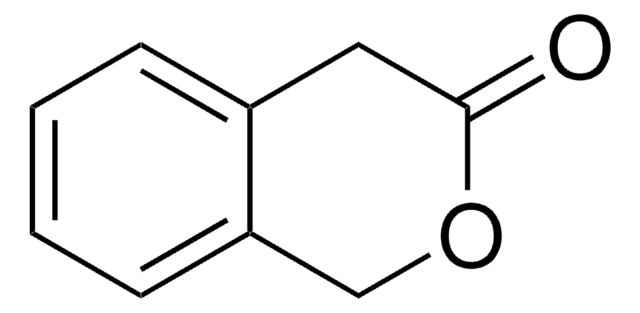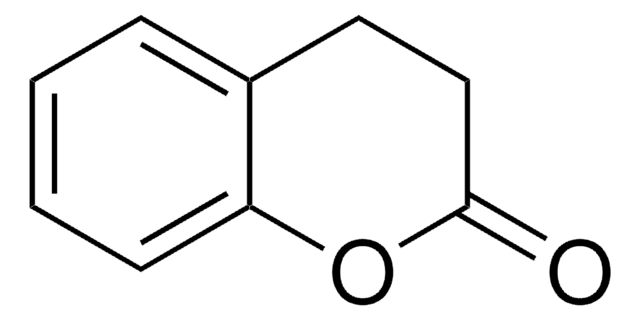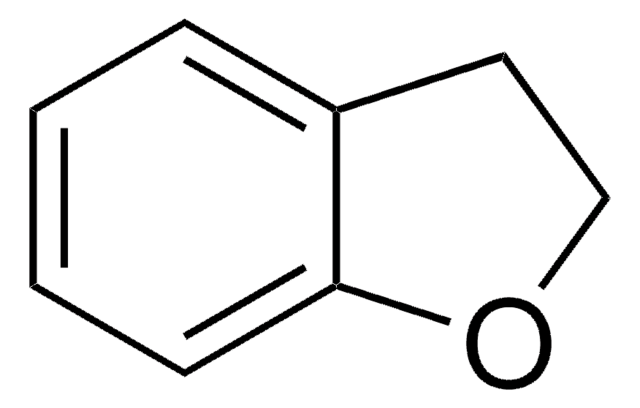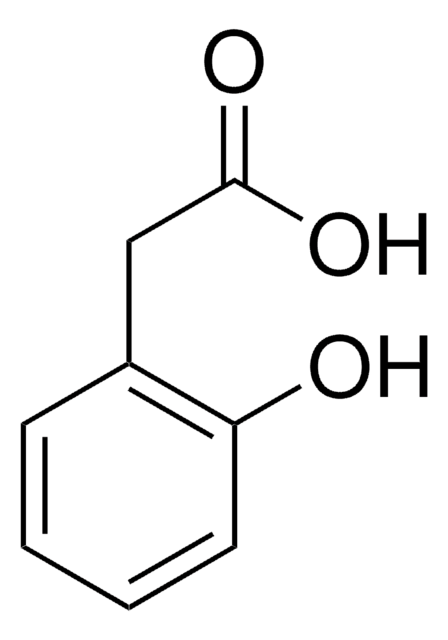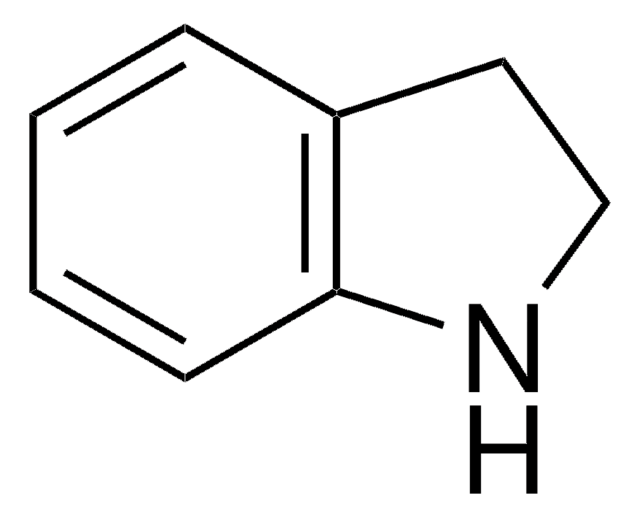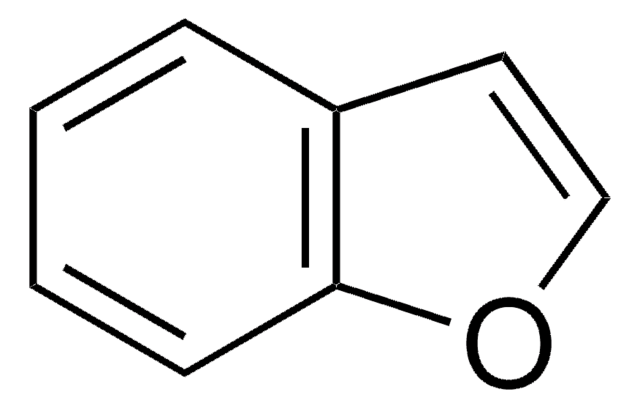124591
2-Coumaranone
97%
Autenticatiper visualizzare i prezzi riservati alla tua organizzazione & contrattuali
About This Item
Formula empirica (notazione di Hill):
C8H6O2
Numero CAS:
Peso molecolare:
134.13
Numero CE:
Numero MDL:
Codice UNSPSC:
12352100
ID PubChem:
NACRES:
NA.22
Prodotti consigliati
Livello qualitativo
Saggio
97%
Stato
powder
P. ebollizione
248-250 °C (lit.)
Punto di fusione
49-51 °C (lit.)
Solubilità
H2O: soluble 3.8 g/L at 30 °C
Stringa SMILE
O=C1Cc2ccccc2O1
InChI
1S/C8H6O2/c9-8-5-6-3-1-2-4-7(6)10-8/h1-4H,5H2
ACZGCWSMSTYWDQ-UHFFFAOYSA-N
Informazioni sul gene
human ... CYP1A2(1544)
Categorie correlate
Applicazioni
2-Coumaranone has been used to study the effects of coumarins on 7,12-dimethyibenz(a)anthracene induced neoplasia of the rat mammary gland. It was employed as probe for detecting enzymes which hydrolyze 2-hydroxybenzofuran structures.
Avvertenze
Warning
Indicazioni di pericolo
Consigli di prudenza
Classi di pericolo
Eye Irrit. 2 - Skin Irrit. 2 - Skin Sens. 1
Codice della classe di stoccaggio
11 - Combustible Solids
Classe di pericolosità dell'acqua (WGK)
WGK 3
Punto d’infiammabilità (°F)
257.0 °F
Punto d’infiammabilità (°C)
125 °C
Dispositivi di protezione individuale
Eyeshields, Gloves, type N95 (US)
Scegli una delle versioni più recenti:
Possiedi già questo prodotto?
I documenti relativi ai prodotti acquistati recentemente sono disponibili nell’Archivio dei documenti.
V Strubel et al.
FEMS microbiology letters, 49(2-3), 233-238 (1989-04-01)
Dibenzofuran degrading bacteria were enriched from various environmental sources. A mutualistic mixed culture of strain DPO 220 and strain DPO 230 was characterized. Strain DPO 220 alone showed limited growth with dibenzofuran as sole source of carbon and energy (td
Inhibition of chemical carcinogen-induced neoplasia by coumarins and alpha-angelicalactone.
L W Wattenberg et al.
Cancer research, 39(5), 1651-1654 (1979-05-01)
Esa R Korpi et al.
Addiction biology, 22(4), 1022-1035 (2016-03-19)
Opioid antagonist treatments reduce alcohol drinking in rodent models and in alcohol-dependent patients, with variable efficacy across different studies. These treatments may suffer from the development of tolerance and opioid receptor supersensitivity, as suggested by preclinical models showing activation of
Eric M Jones et al.
Cell systems, 8(3), 254-260 (2019-03-25)
G protein-coupled receptors (GPCRs) are central to how mammalian cells sense and respond to chemicals. Mammalian olfactory receptors (ORs), the largest family of GPCRs, mediate the sense of smell through activation by small molecules, though for most bonafide ligands, they
Ilaria Zamparo et al.
Cell reports, 29(13), 4334-4348 (2019-12-26)
In mammals, odorant receptors not only detect odors but also define the target in the olfactory bulb, where sensory neurons project to give rise to the sensory map. The odorant receptor is expressed at the cilia, where it binds odorants
Il team dei nostri ricercatori vanta grande esperienza in tutte le aree della ricerca quali Life Science, scienza dei materiali, sintesi chimica, cromatografia, discipline analitiche, ecc..
Contatta l'Assistenza Tecnica.